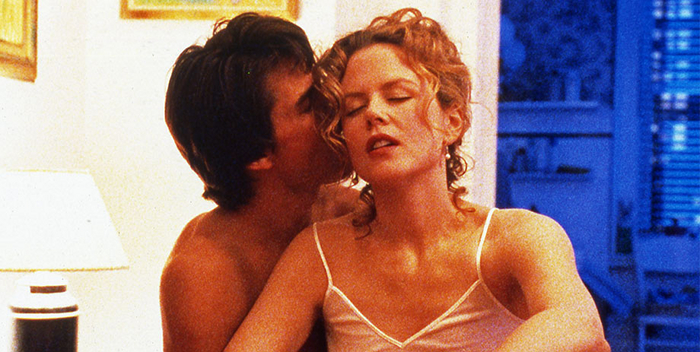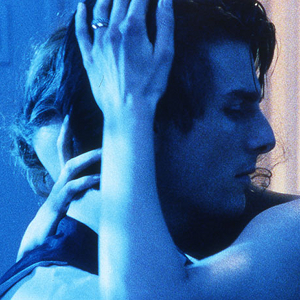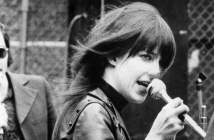
Eyes Wide Shut (1999)
Cast: Tom Cruise, Nicole Kidman, Todd Field
Directors: Stanley Kubrick
Country: USA | UK
Genre: Drama | Mystery | Romance | Thriller
Editor’s Notes: The following review is part of our coverage for TIFF’s Stanley Kubrick: A Cinematic Odyssey. For more information on upcoming TIFF film series visit http://tiff.net and follow TIFF on Twitter at @TIFF_NET.
Stanley Kubrick had a reputation for making what was said to be cold, distant films. He kept everyone at arm’s length while he told stories that were predominantly about the dehumanization of society and under most circumstances generally horrible people. This assertion seems dismissive and is natural if the viewer does not look beyond the surface of the films. In fact, Kubrick made intensely personal films filled with emotion. The trouble is that it takes so much decoding and multiple viewings to get to those emotions that many people don’t quite make it there.
Eyes Wide Shut is no exception. The trouble with it is that the surface story of a jealous husband who is driven to a breaking point due to his wife telling him of an affair she didn’t have is a little threadbare and that belies the true depth that is going on in the picture. Eyes Wide Shut is, to my mind, Kubrick’s most dense and impenetrable film since 2001: A Space Odyssey (possibly the most dense and impenetrable film ever made), which is no small feat considering the films he made between the two. It would take a book to properly analyze the first third, probably three or more for the whole film. Since I don’t have that kind of room here, I’ll do the best I can with the film.
In structuring the film like a dream, Kubrick brilliantly keeps us guessing, never sure what is real and what is imagined. We are constantly asked to question connections and circumstances …
First there is the opening with Dr. Bill Hartford (Tom Cruise) and his wife Alice (Nicole Kidman, whom at the time was married to Cruise) going to an annual Christmas party thrown by one of his exorbitantly wealthy patients Victor (Sidney Pollack). While there, both are propositioned by strangers and neither succumb to the temptations laid before them. Bill also runs into an old friend from medical school, Nick Nightingale (Todd Field, who has become quite a good writer/director in his own right since). They briefly catch up and Nick tells Bill he’ll be playing with a pick-up band at a café in the Village and Bill says he’ll try to swing by one night. The next day is standard for them; Bill goes to work and sees patients while Alice stays home with their daughter Helena (Madison Eginton). That night, Bill and Alice smoke pot and this is where the revelation that shakes Bill to his core and starts off the most memorable parts of the film. Alice recounts that while on vacation the year prior she lusted after a naval officer and would have given up her whole life just to spend one night with him. Bill is shocked because first of all he never envisioned his wife thinking like this and second because he still labored under the delusion that women in general didn’t have feelings of that nature. He still thought in the ‘men have the urge to screw around to spread their seed but women just want to settle down with one man’ vein, which is like some chauvinistic get-out-of-jail-free card that is utter nonsense. Just when Bill is trying to process the total upturning of his idiotic worldview, the phone rings, calling him away to the home of a patient who has just died.

This starts Bill’s odyssey. After leaving the home of his expired patient, he goes inside with a prostitute, meets up with Nick who tells him of a secret masked ‘party’ that he plays blindfolded for. Bill gets the address and the password, obtains a costume and goes to this ‘party’. Inside he witnesses some kind of ritual, I hesitate to call it satanic but it does look ancient, wherein nearly-nude masked women are in a circle while a chanting man with a thurible (incense burner suspended by a chain), the women are then individually dismissed to choose someone to leave the extremely large room with. One woman chooses Bill and tries to warn him to leave because she knows who he is and that he doesn’t belong there. He of course disregards her and is discovered after winding his way through a nudity-filled house-encompassing orgy. The woman volunteers herself to take his place and he’s kicked out, reeling from what he’s witnessed. He’s warned not to make any inquires or risk his and his family’s safety.
It goes on from there, but to go on would take much too long. Suffice it to say that Bill does keep trying to investigate what he saw and it doesn’t work out for him at all. From all of this story and plot, based on the novella Traumnovelle (translated from the German as Dream Story) by Arthur Schnitzler, Kubrick weaves a tale of jealousy and dread and emphasizes that what we imagine is infinitely worse than anything we actually experience. Bill is tortured throughout the film by this image of his wife in progressing stages of sex with her naval officer. Though it never happened, he wants to exact revenge on Alice as though it had. His entire motive for almost sleeping with the prostitute (and attempting to see her again then trying to sleep with her roommate) to potentially trying to have sex at the orgy and so on are all based off the construct in his mind that he just can’t shake. Kubrick layers the plausible with the implausible while setting the entire film inside a dream. The streets of this New York are exaggerated and quite unlike any real New York street (the whole film was shot in England, possibly with some exteriors shot by a second unit in New York) and every Christmas tree has the exact same lights in nearly the same configuration, rooting each scene (because every scene has a visible Christmas tree) in some kind of dream logic. Add to that the dissolves that carry us from scene to scene instead of hard cuts blends each scene together in a dreamlike fashion. We are carried along from things we can understand in real life to things that we can’t even fathom, like the uber-rich orgy ritual.
We wander through the film as we do our nightly REM sleep, from one scenario to another, one plausible and the next implausible and we wake sometimes never knowing what has just transpired in our minds.
In structuring the film like a dream, Kubrick brilliantly keeps us guessing, never sure what is real and what is imagined. We are constantly asked to question connections and circumstances and like Bill, we can’t let go of what we’ve seen and we have to try to understand it even if we know we possibly never will. He uses this film as an examination of the human psyche, trying to find out why we obsess over things that could have happened but didn’t or things that maybe didn’t ever have the possibility of happening. He emphasizes the dreamlike and nightmarish qualities of the film by constantly repeating Shostakovich’s Jazz Suite, Waltz 2, a lilting and hypnotic piece and Ligeti’s Musica Ricercata II: Mesto, Rigido e Cerimonale, a menacing solo piano piece whose bass is terrifying and treble piercing and startling. We wander through the film as we do our nightly REM sleep, from one scenario to another, one plausible and the next implausible and we wake sometimes never knowing what has just transpired in our minds.
All of this and I still haven’t mentioned the astounding (and I use that word un-ironically here) performance by Tom Cruise. It stands as one of his finest performances, along with his other 1999 performance in Magnolia. Cruise strips bare his typical persona and reveals a vulnerable man, one who is so comfortable and convinced that nothing could go wrong with his life that when one imperfection peaks through, he becomes completely undone. There is an under-utilized-by-Cruise vulnerability in the character of Bill Hartford that expresses itself as self-torturing and revenge seeking. He doesn’t know what to make of Alice’s confession so instead of trying to understand it he seeks to punish her for even considering being unfaithful and in the end only punishes himself.
Kidman, on the other hand, only shines in the pot-smoking-in-her-underwear scene. She is amazing in that scene, but there alone. Everywhere else in the film she makes Alice seem kind of vapid and barely there. It’s possible that she was trying to convey some kind of ennui with her portrayal, but it feels more like she only barely got into her character, like she never found Alice’s core like she did for Virginia Wolfe in The Hours a few years later.
Kubrick labored over this film and several other films that never got off the ground for 12 years before finally getting it done. Unfortunately he didn’t live to see the release of the film, dying four months before it hit theaters. For his final film, he left us with an enigma. I loved the film when I first saw it on or near opening night so much that I saw it a second time in the theaters and have revisited it many times since and yet I’ve never until now been able to place why it impacted me so deeply. There is an elusive quality to the film that prevents it from being hailed as a final masterpiece for the man whom many (including me) hail as arguably the greatest, and inarguably one of the greatest, filmmakers of all time. Eyes Wide Shut may still need more time to become appreciated like many of the rest of his 13 total feature films, despite 15 years already passing. It is not an easy film by any stretch and it’s certainly not for everyone but it is something that demands to be considered and is nearly impossible to shake off even days after seeing it whether it’s the first time or the tenth.
Eyes Wide Shut may still need more time to become appreciated like many of the rest of his 13 total feature films, despite 15 years already passing. It is not an easy film by any stretch and it’s certainly not for everyone but it is something that demands to be considered and is nearly impossible to shake off even days after seeing it whether it’s the first time or the tenth.




